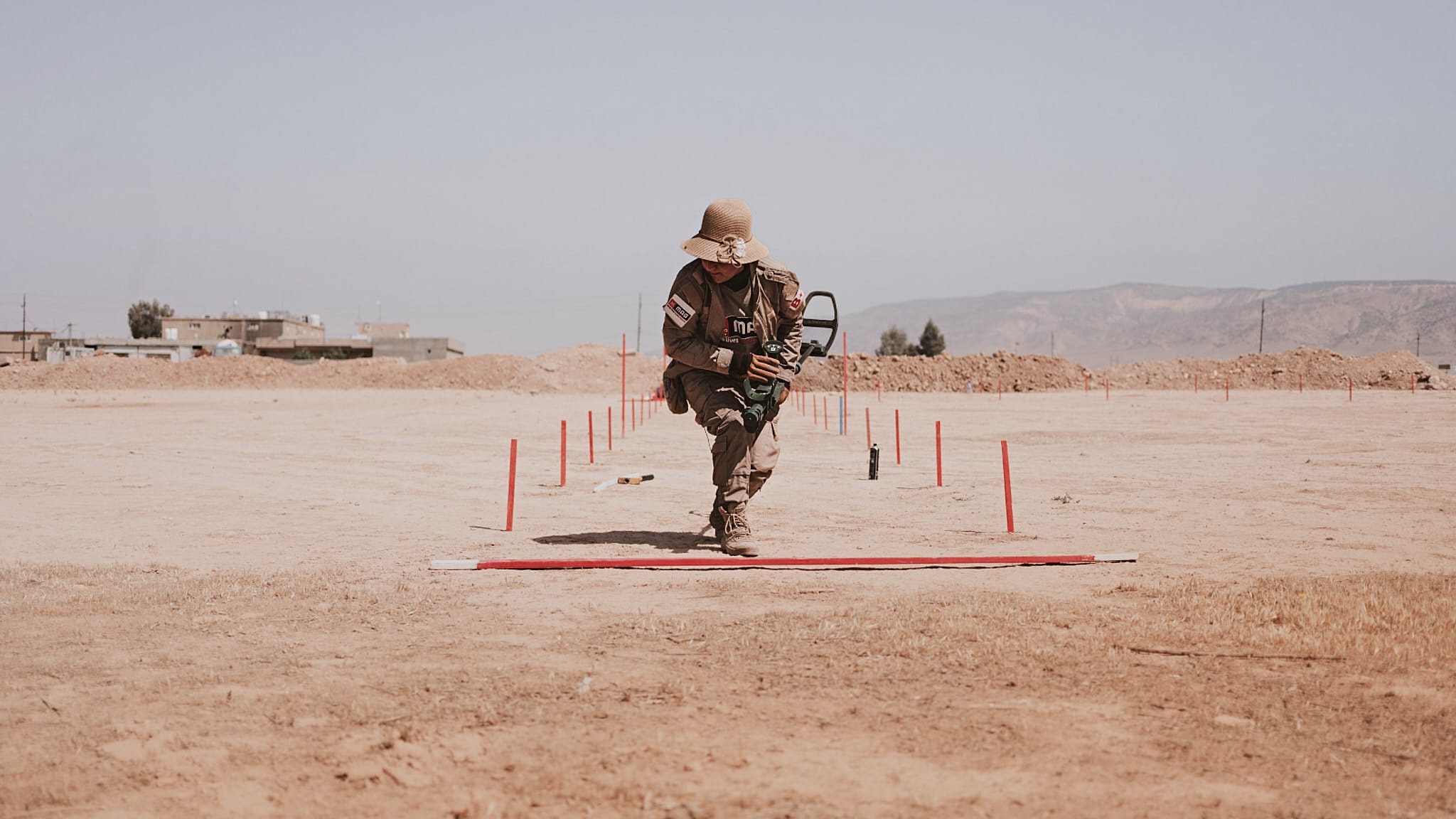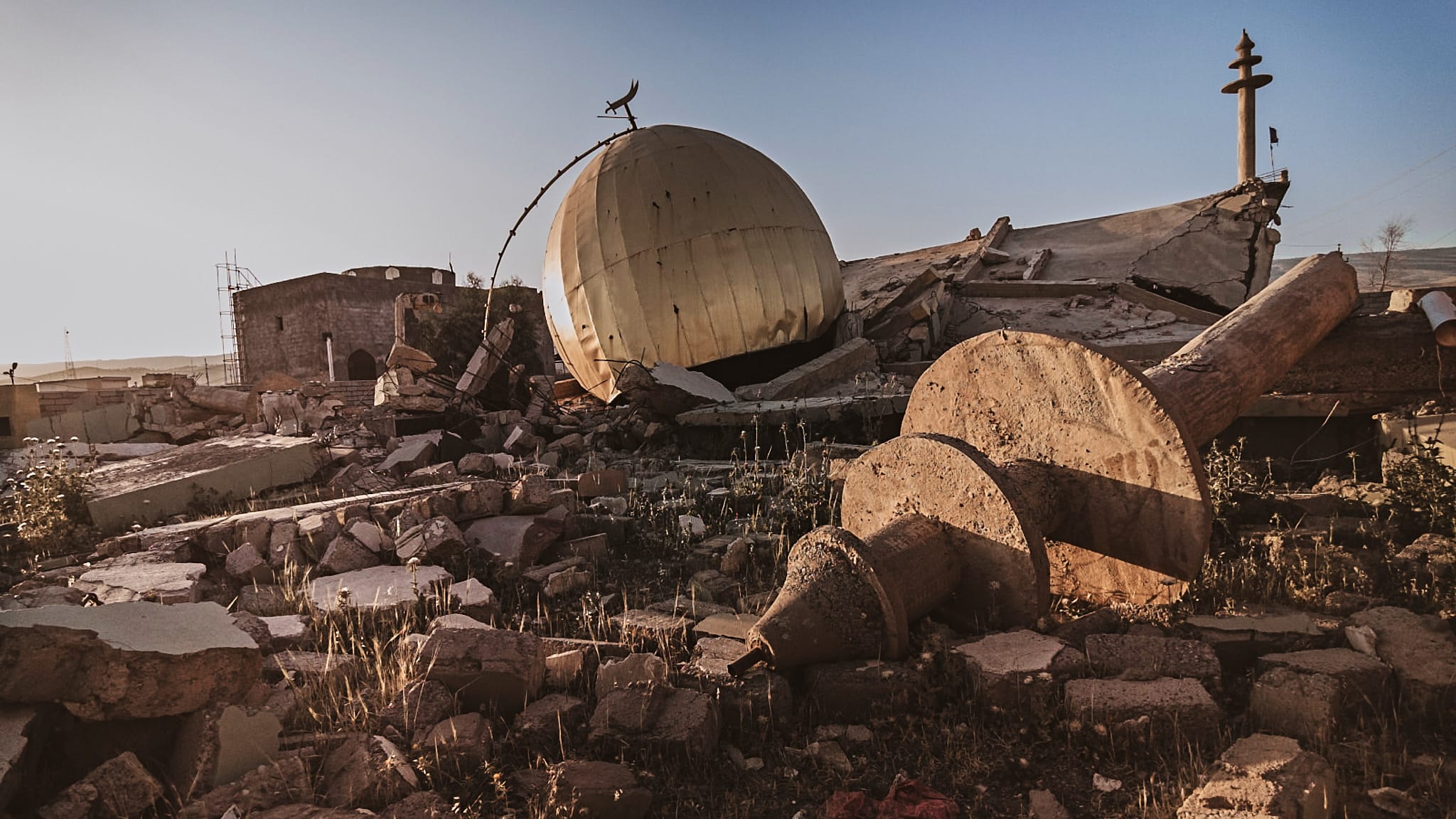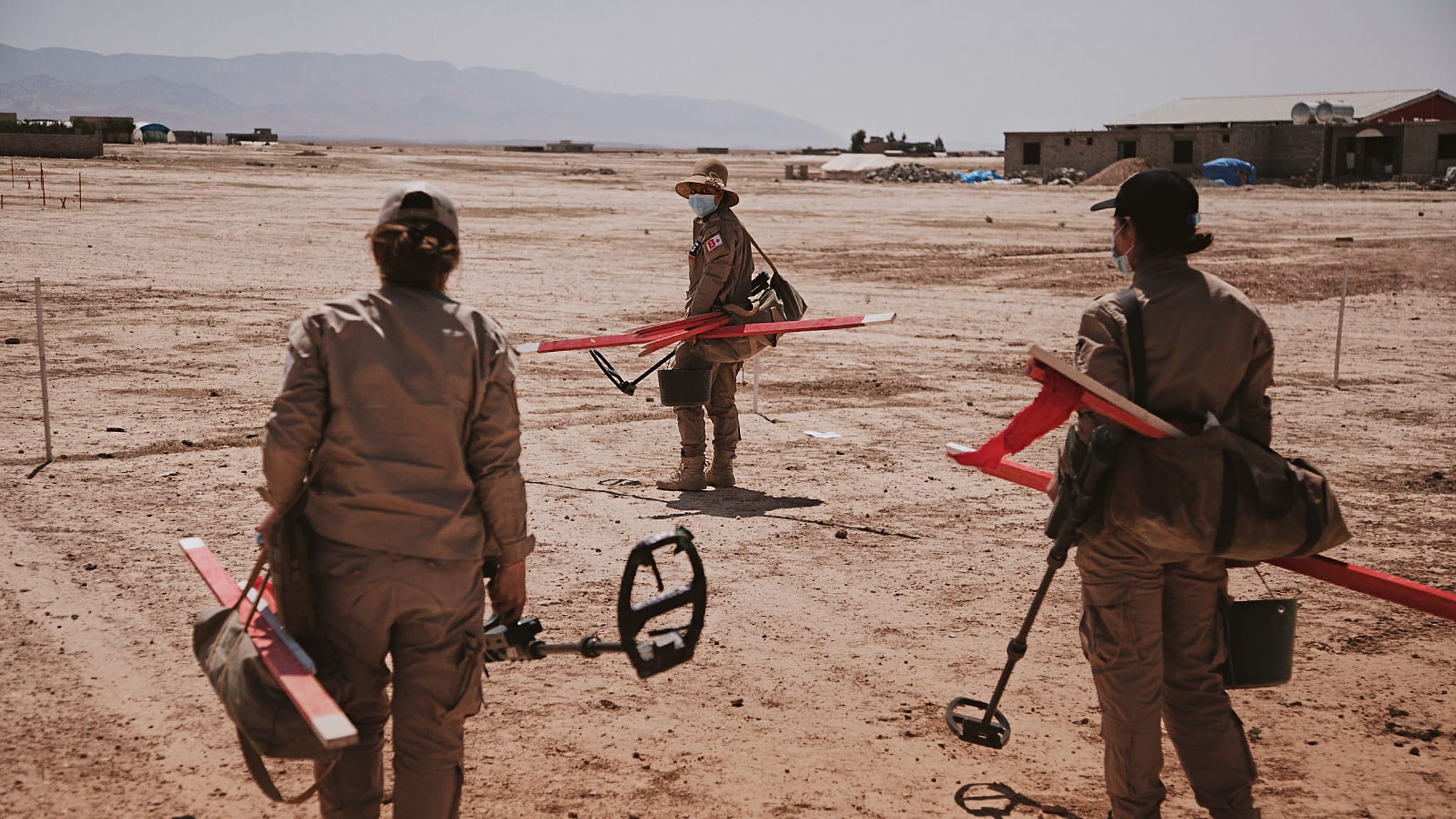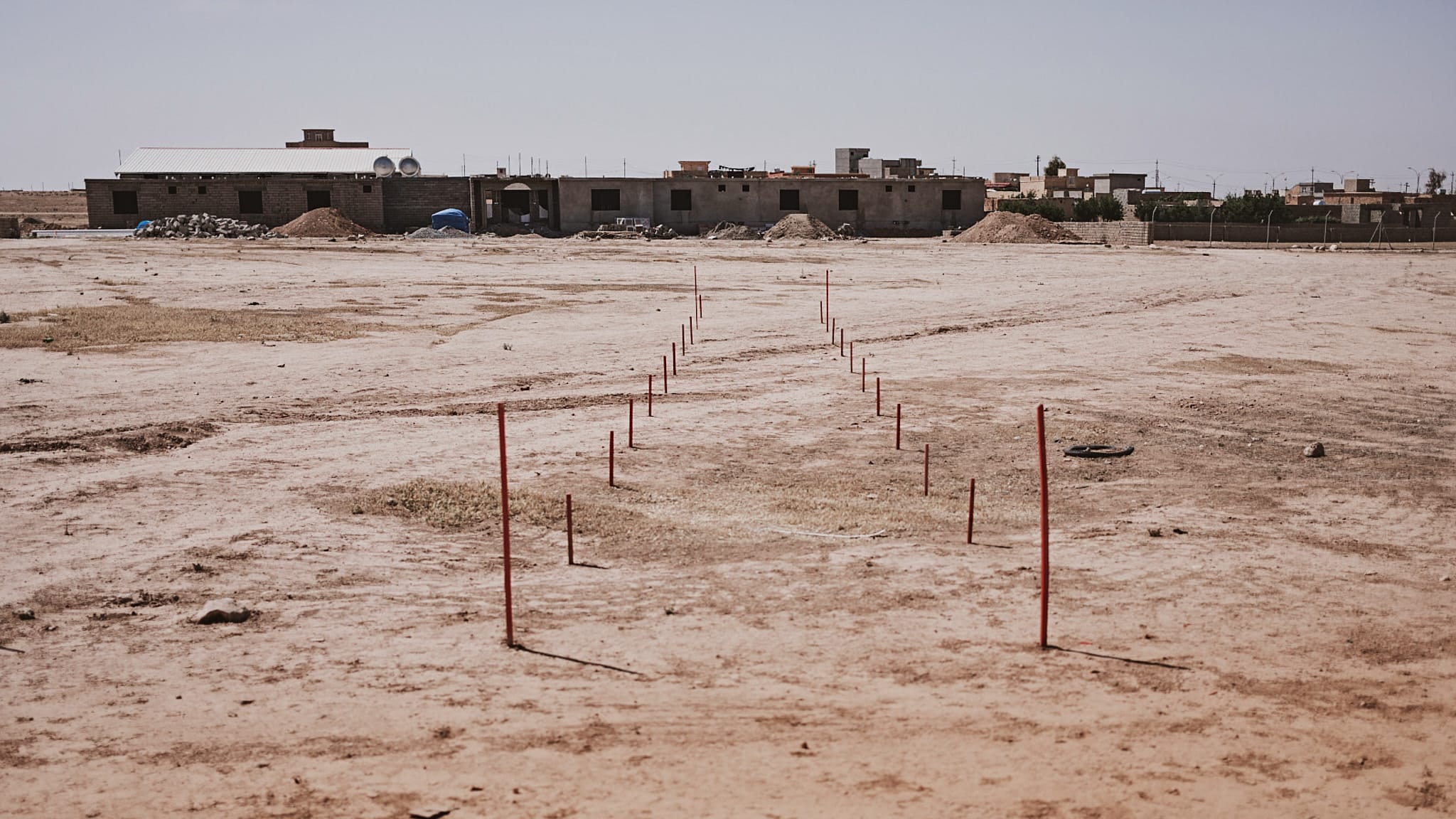
Returning to a safer life through demining
Background
Iraq is one of the countries most contaminated by explosive weapons in the world.This drastically curtails the possibilities for a more secure life of the Iraqi population even after the war. Thousands of displaced people who are now returning to their homes and starting to rebuild are acutely endangered by uncleared mines and munitions. Parents and children live in constant fear as explosive devices are repeatedly found in schools. Threatened by poverty, many people risk their lives daily by working in areas that are considered heavily mine-polluted.
In addition to the omnipresent danger to life and limb, the heavy contamination with mines also affects the mental health of the civilian population. It further prevents safe access to resources, services, and humanitarian aid, thus hampering the already challenging prospects for economic development in the country.
More than just “Demining” – Handicap International’s holistic approach
Building on its long-standing global expertise in the fight against mines, our project partner Handicap International (HI) pursues an all-encompassing approach to support the people living in the Kirkuk and Salah al Din districts. This comprises four main pillars: demining, educating at-risk populations, providing victim assistance, and engaging in advocacy for especially vulnerable populations.
When clearing the land of explosive remnants, demining teams search the ground with metal detectors and check the contours with mine detection needles, then carefully expose and defuse any dangerous objects.
As explosive ordnance is usually camouflaged and can be difficult to detect and avoid, educating at-risk populations about the right behaviour plays a crucial role. Local response teams therefore explain to community members how to deal with a variety of situations they might face.
Unfortunately, the hidden dangers of explosive remnants lurk almost everywhere in Iraq. Even if people survive a mine incident, they often suffer from severe injuries and disabilities that require special care. Handicap International assists the victims not only with emergency medical care but also with prolonged physical rehabilitation as well as psycho-social support.
In addition, HI advocates for the interests and rights of specific groups such as women and people with disabilities, who are affected in different ways by the consequences of the country’s heavy contamination with mines.
With this holistic approach, the knodel foundation together with Handicap International contributes to making the lives of the Iraqi population safer and assists in creating the basic conditions for the redevelopment of the country.





